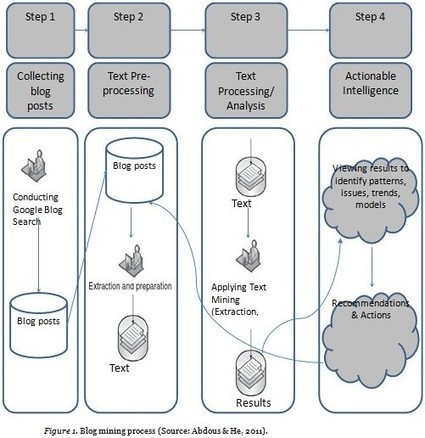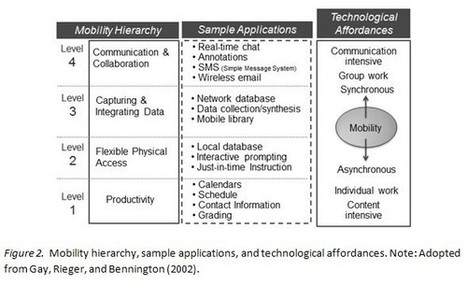Abstract: MOOCs (massive open online course) is a disruptive innovation and a current buzzword in higher education. However, the discussion of MOOCs is disparate, fragmented, and distributed among different outlets. Systematic, extensively published research on MOOCs is unavailable. This paper adopts a novel method called blog mining to analyze MOOCs. The findings indicate, while MOOCs have benefitted learners, providers, and faculty who develop and teach MOOCs, challenges still exist, such as questionable course quality, high dropout rate, unavailable course credits, ineffective assessments, complex copyright, and limited hardware. Future research should explore the position of MOOCs and how it can be sustained.
Via Peter B. Sloep



 Your new post is loading...
Your new post is loading...












The introduction to the article sometimes paints perhaps too simplistic a picture (such as that the xMOOCs and cMOOCs exhaust the universe of possible MOOCs; cf my recent scoop in early March: http://sco.lt/8FAEJl) or a somewhat trite one (“MOOCs represents an emerging methodology of online teaching and an important development in open education.”). Still the article is an interesting contribution to MOOC research for the methodology it employs: text mining and analysis of blogs on MOOCs. Language technologies - in this case concept analysis and mapping using leximancer - are a powerful means to crunch large amounts of textual data, often revealing patters that are not immediately apparent to the naked eye. The value of the article therefore does not lie in its introduction, but in the results and ensuing discussion.
Chen summarises the results under the headings of benefits for learners, benefits for providers, and trends, concluding with a discussion of the limitations of his study. His conclusions are not earth shattering, but how could they? After all, this is a mere summary of what he came across in the 360 blog posts he analysed with the help of leximancer; it is not a position paper in any sense, at best it is a kind of meta-analysis. To put it differently, tongue in cheek, there’s no need to go through the 431 scoops I collected on these pages to get an impression of what has been discussed about MOOCs in blogs over the last 4 odd years. Read the article and you have a fair idea. And then you should go to individual blog posts to collect opinions. @pbsloep